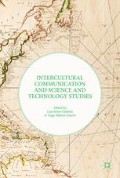Abstract
Science and Technology Studies (STS) scholars have historically struggled to convince their audiences that sociological accounts of scientific work are not a critique of science. Here I suggest that the challenge of communicating science in action should be understood as a problem of creating a community of knowledge with audiences outside STS. I draw upon my own research to investigate the role of trust in overcoming this communicative challenge. I present three social processes as an explanation of the simultaneous constitution of my contingent trust relations with a group of dendroclimatologists and STS knowledge. What emerges from my account is, therefore, an optimistic message for STS scholars regarding the role of trust in communicating science in action; to be sure, having trust bonds with our immediate scientific audiences does not generate immediate and complete communication but it cultivates greater tolerance and mutuality.
“Proposals to grant special authority to STS expertise cannot readily use the leverage provided by identification with a singular source of privileged knowledge.
Instead, if proponents of STS are to play by the rules of their own game, they must win their authority on a level playing field; or, worse, on a field that presents them with an uphill struggle.”
Michael Lynch (2009: 109)
Access this chapter
Tax calculation will be finalised at checkout
Purchases are for personal use only
References
Barnes, B. 1974. Scientific Knowledge and Sociological Theory. London; Boston: Routledge and K. Paul.
———. 2001. Tolerance as a Primary Virtue. Res Publica 7(3): 231–245.
Bloor, D. 1991. Knowledge and Social Imagery. Chicago, IL: University of Chicago Press.
———. 2008. Relativism at 30,000 Feet. In Knowledge as Social Order: Rethinking the Sociology of Barry Barnes, ed. M. Mazzotti, 13–33. Farnham, UK: Ashgate Publishing.
Collins, H., and T. Pinch. 1998. The Golem: What You Should Know about Science. Cambridge, MA; New York, NY: Cambridge University Press.
Collins, Harry, and Robert Evans. 2016. A Thousand Words Is Worth a Picture. Social Studies of Science 46(2): 312–324.
Dees, R.H. 2004. Trust and Toleration. Oxfordshire, NY: Routledge.
Garfinkel, H. 1967. Studies in Ethnomethodology. Englewood Cliffs, NJ: Prentice-Hall.
Garforth, L. 2012. In/Visibilities of Research: Seeing and Knowing in STS. Science, Technology & Human Values 37(2): 264–285.
Giddens, A. 1990. The Consequences of Modernity. Cambridge, MA: Polity.
Gieryn, T. 1996. Policing STS: A Boundary-Work. Souvenir from the Smithsonian Exhibition on “Science in American Life”. Science, Technology & Human Values 21(1): 100–115.
Goffman, E. 1956. The Presentation of Self in Everyday Life. Edinburgh: University of Edinburgh Social Sciences Research Centre.
Horst, M., S.R. Davies, and I. Irwin. 2017. Reframing Science Communication. In Handbook of Science and Technology Studies, ed. U. Felt et al., 881–889. Cambridge, MA: MIT Press.
Labinger, J., and H. Collins. 2001. The One Culture? A Conversation about Science. Chicago: University of Chicago Press.
Latour, B. 1999. Pandora’s Hope: Essays on the Reality of Science Studies. Cambridge, MA: Harvard University Press.
Lynch, M. 2009. Science as a Vacation: Deficits, Surfeits, PUSS, and Doing Your Own Job. Organisation 16(1): 101–119.
MacKenzie, D. 2002. What’s in the Bottle? London Review of Books 24(9): 21–22.
Mazzoti, M. 2008. Knowledge as Social Order: Rethinking the Sociology of Barry Barnes. Aldershot: Ashgate.
Merton, R.K. 1976. Postscript: The Ambivalence of Scientists. In Sociological Ambivalence and Other Essays, ed. R.K. Merton. London: Simon and Schuster.
———. 1979. The Sociology of Science: An Episodic Memoir. Carbondale: University of Southern Illinois Press.
Mol, A. 2002. The Body Multiple: Ontology in Medical Practice. Durham, NC: Duke University Press.
Mulkay, M., and N. Gilbert. 1982. Accounting for Error: How Scientists Construct their Social World When They Account for Correct and Incorrect Belief. Sociology 16(2): 165–183.
Nethery, D., and E. Vincent. 2016. Climate Scientists Are Now Grading Climate Journalism. The Guardian, 26 April. https://www.theguardian.com/environment/climate-consensus-97-per-cent/2016/apr/26/climate-scientists-are-now-grading-climate-journalism. Accessed 12 Oct 2016.
Plemmons, D., and A.W. Barker. 2016. Anthropological Ethics in Context: An Ongoing Dialogue. Walnut Creek, CA: Left Coast Press, Inc.
Ramírez-i-Ollé, M. 2015. Rhetorical Strategies for Scientific Authority: A Boundary-Work Analysis of “Climategate”. Science as Culture 24(4): 384–411.
Ribeiro, Rodrigo, and Francisco P.A. Lima. 2016. The Value of Practice: A Critique of Interactional Expertise. Social Studies of Science 46(2): 282–311.
Reyes-Galindo, L. 2014. Linking the Subcultures of Physics: Virtual Empiricism and the Bonding Role of Trust. Social Studies of Science 44(5): 736–757.
Shapin, S. 1992. Why the Public Ought to Understand Science-in-the-Making. Public Understanding of Science 1(1): 27–30.
———. 1995. Trust, Honesty, and the Authority of Science. In Society’s Choices: Social and Ethical Decision Making in Biomedicine, ed. R.E. Bulger, E.M. Bobby, and F.V. Fineberg, 388–408. Washington, DC: National Academy Press.
Author information
Authors and Affiliations
Editor information
Editors and Affiliations
Rights and permissions
Copyright information
© 2017 The Author(s)
About this chapter
Cite this chapter
Ramírez-i-Ollé, M. (2017). From “Climate Sceptic” to “Dendro-Sociologist”: Considering the Role of Trust in the Communication of Science in Action. In: Reyes-Galindo, L., Ribeiro Duarte, T. (eds) Intercultural Communication and Science and Technology Studies. Palgrave Macmillan, Cham. https://doi.org/10.1007/978-3-319-58365-5_5
Download citation
DOI: https://doi.org/10.1007/978-3-319-58365-5_5
Published:
Publisher Name: Palgrave Macmillan, Cham
Print ISBN: 978-3-319-58364-8
Online ISBN: 978-3-319-58365-5
eBook Packages: Social SciencesSocial Sciences (R0)

